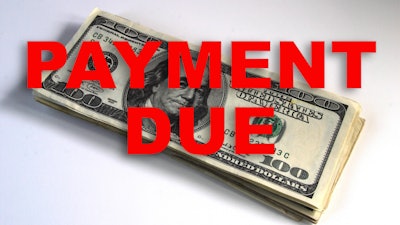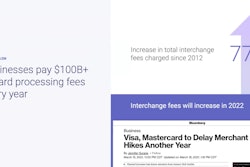
Getting paid in the construction business can be more of a challenge than the work itself. It takes longer to get paid in the construction business than in just about any other industry, and other payment issues including high instances of non-payment are relatively common as well. Sometimes, however, the industry’s payment challenges can be traced all the way back to the beginning of a project, even before the work begins.
We’re talking about certain clauses within contracts that can make getting paid more difficult. These problematic clauses include contingent payment clauses (i.e., pay-when-paid or pay-if-paid), no-lien clauses and lien subordination clauses.
Contingent payment clauses
“Pay-If-Paid” and “Pay-When Paid” clauses are contingent payment provisions commonly used in the construction industry. Over the past two decades the provisions have grown in complexity and sophistication as property developers and general contractors attempt to shift the financial risk of a project down the contracting chain.
Navigating Construction Contracts: Pay If Paid vs. Pay When Paid Clauses
Generally speaking, pay-when-paid clauses are interpreted as a mere timing mechanism for payment, i.e. the contractor will pay the subcontractor within a certain amount of days after receiving payment from the owner. In other words, the clause is a “timing mechanism.” If the contractor is not paid by the owner, the pay-when-paid clause does not absolve the contractor from his obligation to pay his subs.
Pay-If-Paid is a little bit different as it is intended to shift the risk of non-payment down the contracting chain from the prime contractor to a lower party such as the subcontractor. These types of clauses are generally viewed unfavorably by courts, though they have a chance of being enforceable if the wording is clear and precise as to leave no room for interpretation about what it is trying to accomplish.
No-lien clauses
A “no lien clause” is simply a clause within a construction contract, or a lien waiver document signed before the furnishing of work, whereby a party preemptively waives its right to later file a mechanics lien on the project.
What Do You Need to Know About Construction Lien Waivers?
In general, no-lien clauses are looked upon with disfavor, and many states have specifically and forcefully disallowed their inclusion in contracts, and their enforcement, by statute or through court decisions
Note, however, that while this is generally the case it is not universally always true in practice. Additionally, while there may be technical difference between a no lien clause in the original contract and a preemptive lien waiver prior to furnishing labor or materials to a project, there is no practical difference, as both result in no lien rights for the potential claimant. Some states let parties waive lien rights prior to performance, subject to certain rules, and some don’t so be careful - depending on your state, the problem may not be in the original contract, but rather, it might be in a subsequent lien waiver.
Lien subordination clauses
Subordination of a mechanics lien takes a lien from its place of higher priority, and moves it behind another interest in the property that originally would have been lower on the priority ladder. Often times, these subordination clauses are contained within lending agreements, so that the lenders can claim priority for their deed of trust over mechanics lien claims that may have otherwise had priority.
Construction Contracts – Beware of Certain Clauses
It is important for construction parties to examine contracts for lien subordination clauses, because even if a “no-lien” clause may not be enforceable, a lien subordination clause may be – and unfortunately for would-be lien claimants, it can have the same ultimate result.
Peter Menge is zlien's Content Manager. He works to create useful content that makes the mechanics lien and construction payment process simple, easy, and fair for everyone in the construction industry.


















